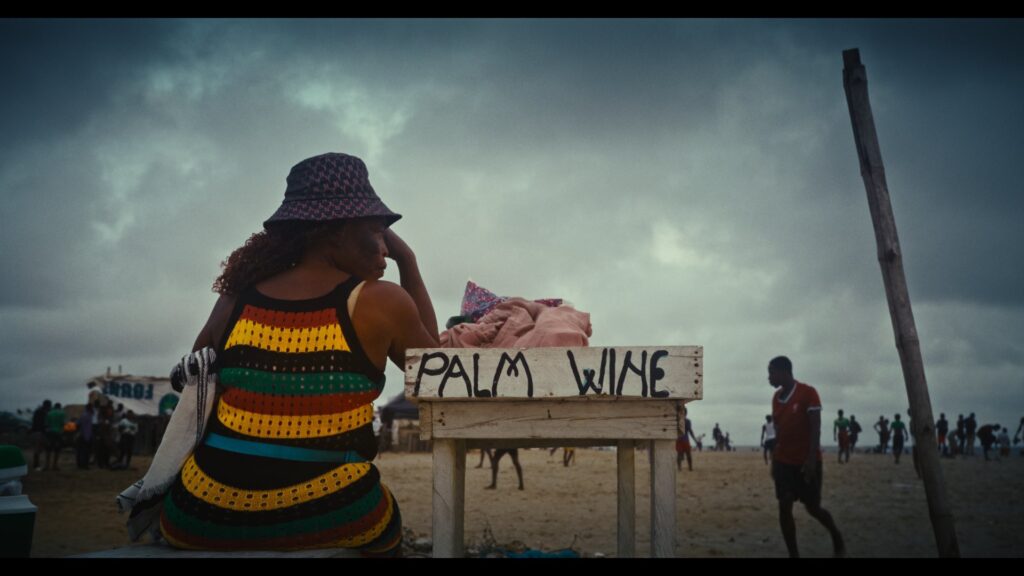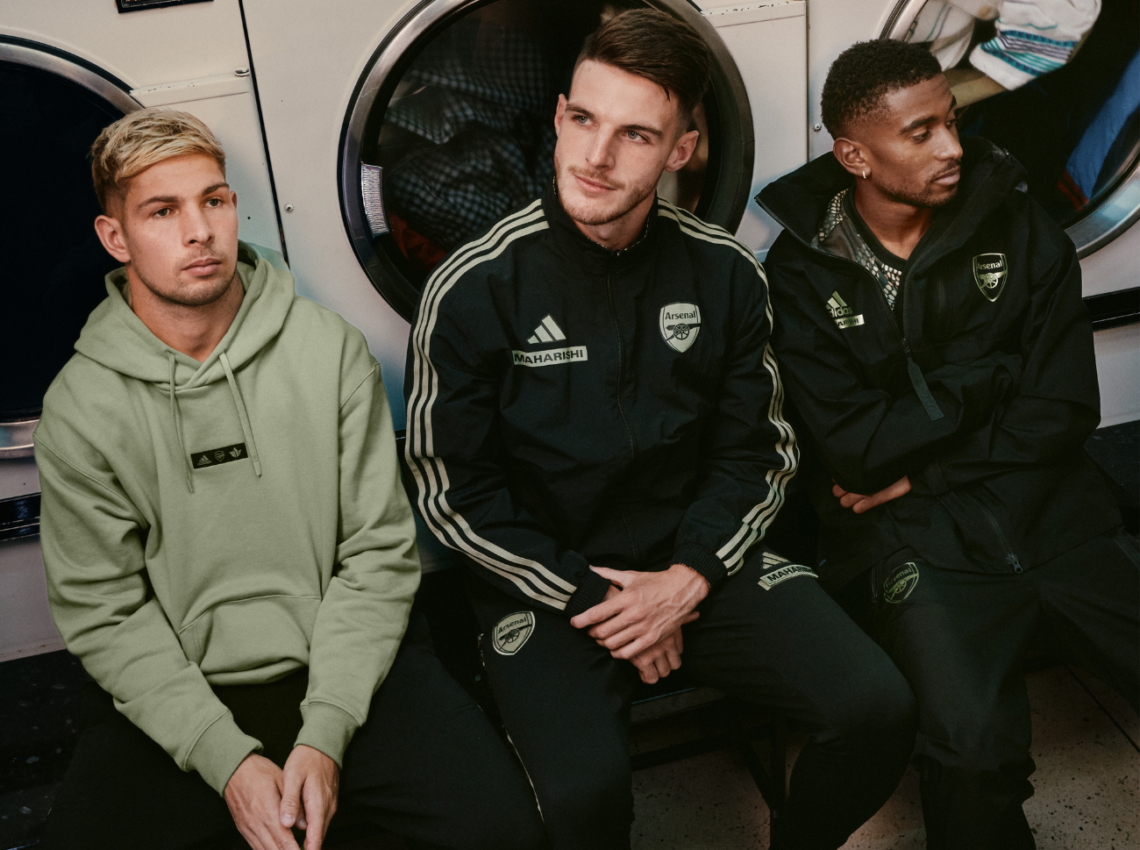JULS [@JULSONIT] ON THE MARRIAGE OF PALM WINE AND HIGHLIFE IN NEW EP, PALMWINE DIARIES VOL. 1
![JULS [@JULSONIT] ON THE MARRIAGE OF PALM WINE AND HIGHLIFE IN NEW EP, PALMWINE DIARIES VOL. 1](https://guap.co/wp-content/uploads/2023/10/image001-2-970x850.png)
Juls returns with a specially curated soundtrack dedicated to his homeland Ghana. The EP dubbed Palmwine Diaries Volume 1 is his celebration of Ghanaian palmwine, and highlife musical elements merged with modern day influences of hiplife. With the sounds of Kpanlogo drums, the strings of the Kologo, to the traditional percussion patterns of the Ashanti, Juls exhibits his unique production and sound by being intentionally tapping into his traditional roots.
Bethel: Palm Wine Diaries is a beautiful project. It can be challenging to determine when a song is complete, so what signals to you that a piece doesn’t require any more work?
Juls: I think my production is very minimalistic. I don’t really like to add too many things. There are some people who like to add layers upon layers upon layers, but I want to leave enough space for the artist to breathe, and do what she or he wants to do on it. I guess people like to take the music in, and take the person’s vocals or lyrics in, whether we’re mid-tempo, up-tempo, or like a slow-tempo thing. That’s what I go off by when I’m just making music.
Bethel: I have my favourites from the EP but I want to hear which track or tracks you found most enjoyable to work on.
Juls: Oh, well. Funny enough, this is probably one of the projects that I’ve listened to over and over again, once I was done. When I do a project, I just leave it alone, and I guess I’ll go back to it when I’m DJing somewhere and I wanna play some of my music there. I think my favourite is ‘Palmwine Riddim’ – just because I’m very proud of that record, in terms of the sound, it’s very nostalgic. It remind me of sounds that were there back in the day, but I feel like it’s still reliable to a new generation, I think that was the quickest song, I made. I think it was probably made in a day. It was literally just vibes with Kingsley, who is one half of The Caveman. I was just messing around with a lot of the percussion instruments in my studio, came up with the drum pattern, some vocal harmonies as well. I played a bass line, but then I wanted him to play the bass line a little bit more on his guitar, and then he just randomly added this guitar link, and I was just like, “Okay, this is it!”
I got my sax guy, Kojo, to come in as well, and we kinda chopped up a few bits that he did. I spent literally the whole day trying to arrange, mix, and produce the record properly, and I liked the vibe that it gave me.
A lot of this project was made of me drinking a lot of palm wine, so that’s why it has the name ‘Palmwine Diaries’. Some of the records were made in Ghana, some were made here, but they are just records that I have been sitting on, but palm wine was pretty much what we were drinking. That’s my drink! That’s been my drink this year pretty much, so it’s kind of like how Palmwine Diaries is a story. It’s me documenting the music that I was making. You know when you write your diary, stuff that you did today, that how I made this and palm wine is the influence, and the drink that we were having just because of the natural high.

Bethel: Is there a difference between Naija palm wine and Ghanaian palm wine?
Juls: I don’t think there really is Naija palm wine per se. I think the sounds have traveled across sub-saharan Africa. A lot of the influence of highlife from Nigeria, they learned from Ghana. In the eighties a lot of Ghanaians moved to Nigeria because of the coups that were happening, and the leaders being overthrown. A lot of highlife musicians weren’t getting a lot of gigs or shows, because it was just a very tough time. There was a famine in the eighties as well, so it was just really, really a bad time, and all of them moved to Nigeria for gigs. They were playing in bands – there were a few Ghanaians that played in Fela Kuti’s band, and they kind of learnt a lot of the style from us, but it’s a sound that has literally travelled across. It was originally adopted from the people in Sierra Leone and Liberia, but it’s really Ghanaians who have carried it but Nigerians have their own form of high life, especially the Igbo people. So they have a different twist to it and I think the style differs mainly in the guitars, the way the guitars are played and maybe the percussion, but the percussion patterns between the two countries are very, very similar.
Bethel: When I hear your music, I often visualise sunsets by the beach. During the creative process, do you actively think about the visual atmosphere that complements your music?
Juls: I think I make the music where I would want the listeners to envision what I see. So all of this music, especially the ones made in Ghana, was made at the beach. We have the beach and I was making a lot of music there. I think that’s become my favourite place to go and make music now. I’ll find a beach house or a nice beach and literally have my set up there and just make beats, music, and just chill really. I’m looking forward to doing that again in the next couple of months.
I know my music has been dubbed as one that takes you on a journey, and it’s a very peaceful journey. You can listen to it on holiday and just enjoy yourself. I never intentionally want to do it, it just so happens that that’s exactly what happens whenever I make a record.

Bethel: What sets Volume One apart from the subsequent EP in terms of its essence?
Juls: I think this was just me experimenting, and I think the next volumes will definitely be a bit more intentional. I kind of have a plan of how I want to set things off. I definitely want to tap into hiplife, I wanna tap into a lot more traditional sounds and be a bit more experimental in the collaboration with other artists as well. Every single volume is gonna have a short film so it’s telling the stories of our sounds. I can’t really say what exactly it is. I have already started working on volume two and I hope to drop that in March next year.
Juls’ ‘Palmwine Diaries Vol. 1’ is the beginning of a sequel of soundtrack experiences that highlight the core elements of the traditional Ghanaian Sound. This EP is perfectly paired with a short film, produced and Directed by Ghanaian Film Director Andy Madjetey in collaboration with Aphro Spirit.
You can stream the EP or watch the film below!
Discover more from GUAP’s Music section here!




![ZINO VINCI’S ‘FILTHY & DISGUSTING’EP BRINGS YOU TO THE CORE OF THE ARTIST [@ZinoVinci]](https://guap.co/wp-content/uploads/2023/10/Zino-4.jpg)




